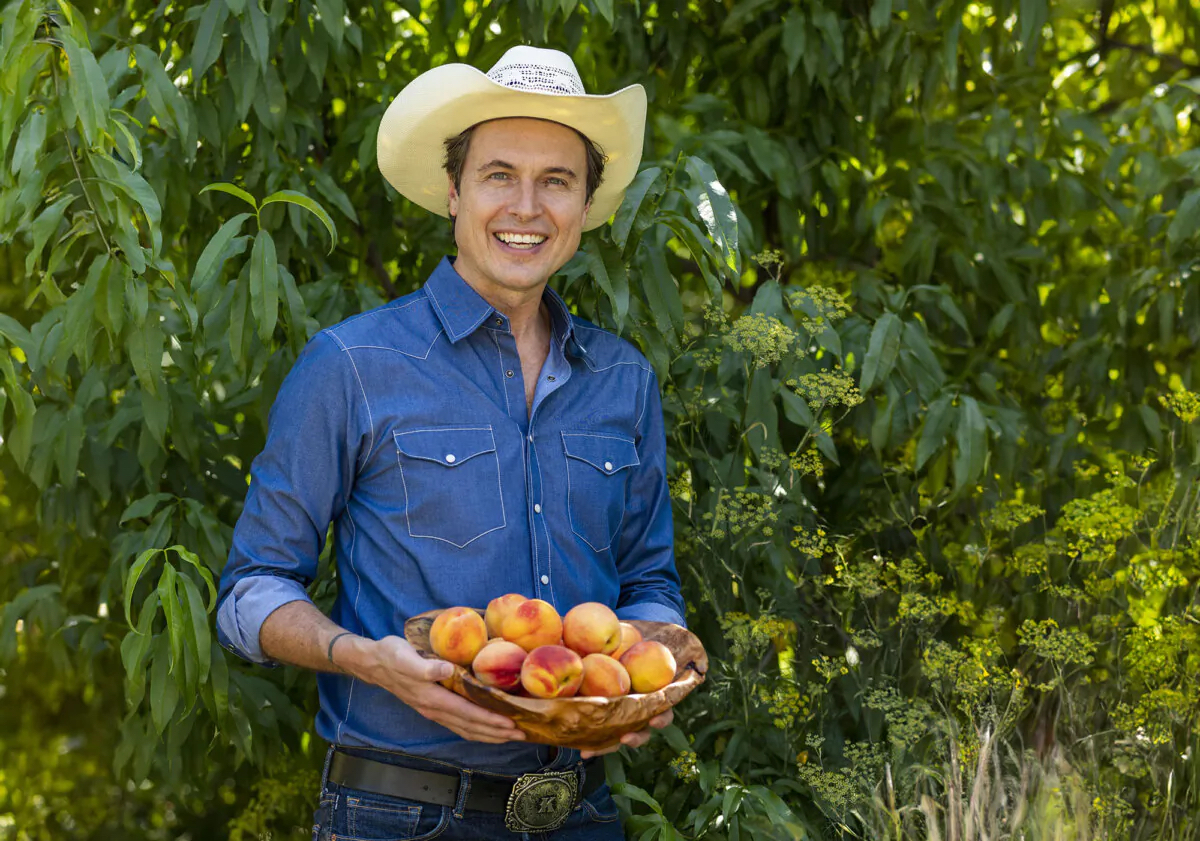Imagine spending 18 months at one of the most prestigious culinary schools in the world, and the first assignment you get after graduating is peeling potatoes in a volunteer kitchen.
But that’s only part of an unusual story that includes a near-death experience, a message from God, and a terrorist attack that led one man to a career dedicated to bringing local, sustainable food to Americans.
Then again, you wouldn’t expect anything less from someone with the last name of Musk. In this case, the tale belongs to Elon’s brother, Kimbal. While the more famous sibling is launching rockets and electric cars, Kimbal Musk is cooking up innovations in the kitchen. The former tech entrepreneur has dedicated his life to his nonprofit, Big Green, which supports sustainable farming, educating children about growing food, and expanding home, school, and community gardens.
He also owns several farm-to-table restaurants in Colorado and Chicago, with a forthcoming location in Austin, Texas. “The kitchen is truly where I have so much passion,” he said. “I love … walking into my restaurant and feeling the energy of the community.” He recently wrote a cookbook, “The Kitchen Cookbook: Cooking for Your Community,” in the hopes that everyone can experience the joy of sharing the fruits (and vegetables) of their labor; he feels that cooking a meal for someone is the ultimate act of sharing.
How he came to this point in his life is a story in itself.
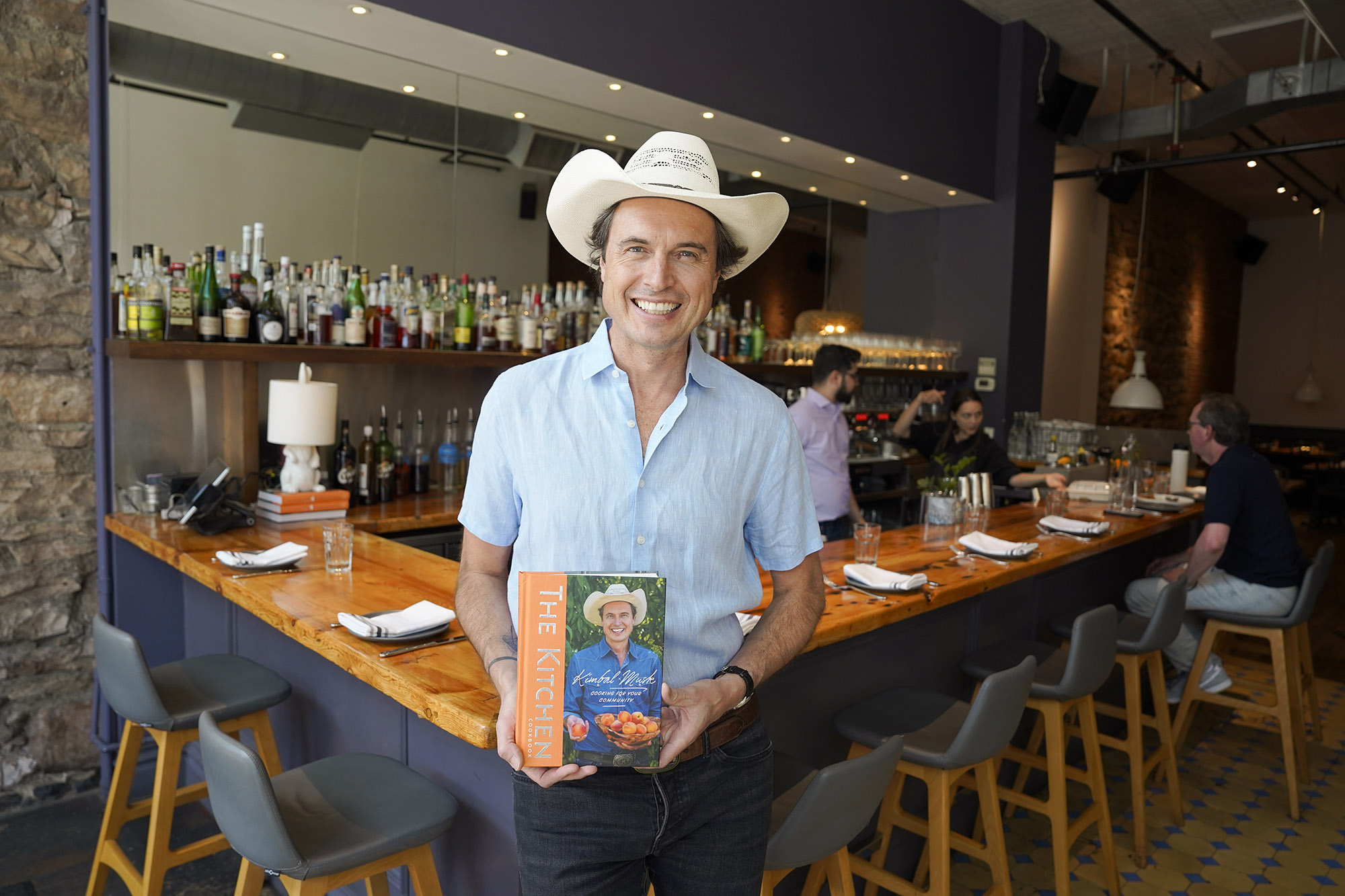
From Tech to Social Entrepreneurship
Already successful and financially secure at age 27 when he and his brother sold Zip2, the tech company they founded together, Mr. Musk decided to pursue cooking. He enrolled in the French Culinary Institute in New York, thinking that the experience would be an exotic endeavor. Instead, it was a lot like the high-stress cooking shows on television.
“I thought of going in and it being somewhat romantic. And it was like the movie ‘Full Metal Jacket.’ It was screaming at you, all the time, breaking you down, in a boot camp kind of mentality.” Of the 25 students who enrolled in that class, only six made it through the year-and-a-half course, he recalled.
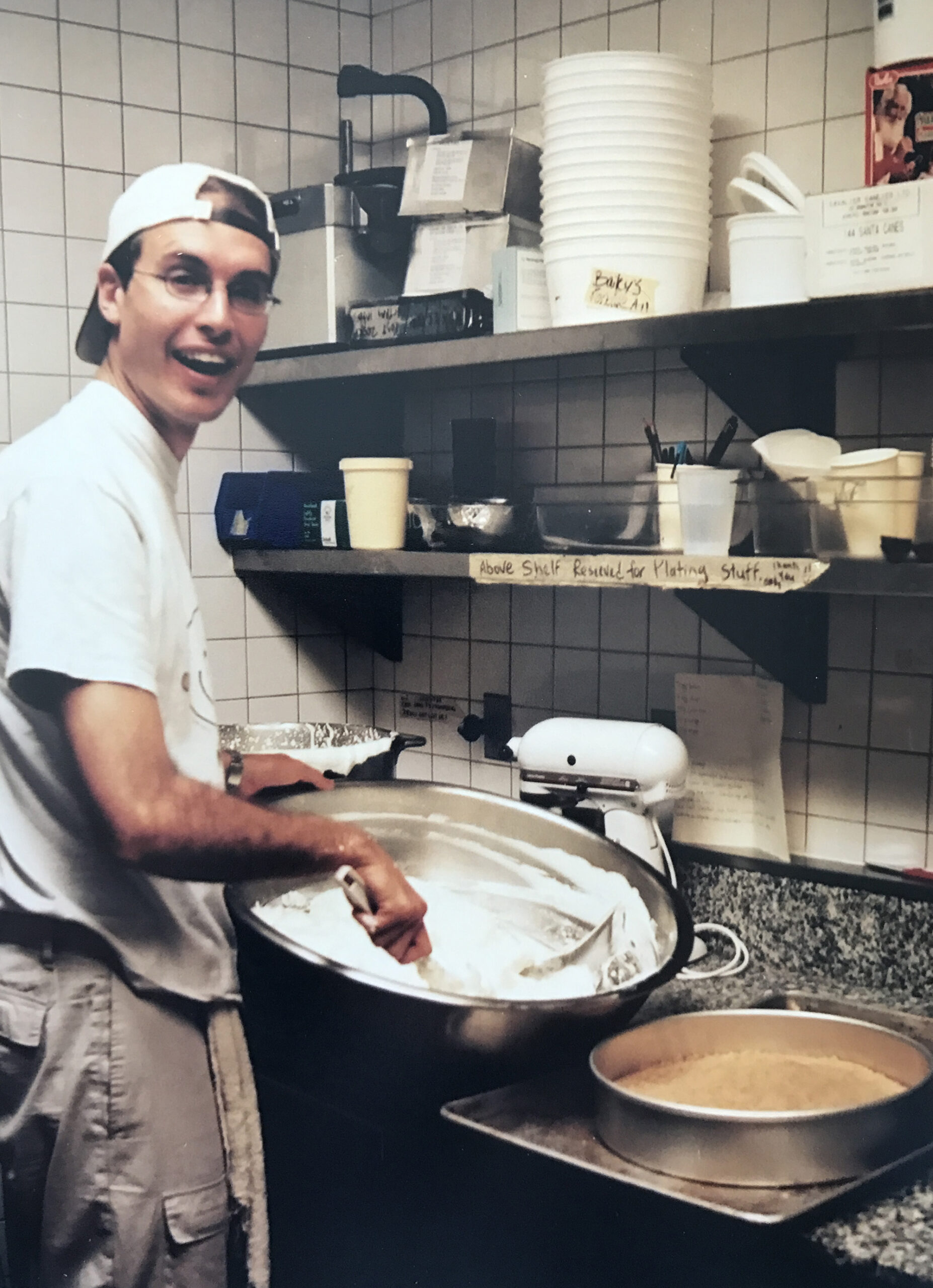
Timing is often everything in life, and this case was no different. Shortly after Mr. Musk completed his training, the 9/11 terrorist attack devastated New York. The city needed its firefighters, police, and first responders more than ever; it also needed people to cook for them as they worked around the clock in rescue and relief efforts. “It started out with me peeling potatoes, and I was there for six weeks, through the end of October.” Top chefs from around the world gathered to cook meals for the rescue workers. Eventually, Mr. Musk worked his way up to the point where he was preparing the dishes.
He enjoyed serving firefighters dishes they probably didn’t get on a regular basis, like sautéed salmon in a creamy dill sauce. During this time, he saw the effect good food had on people as he watched the exhausted, emotionally spent rescue workers renew their spirits as they ate. “We would feed them some of the best foods I think they’d ever eaten in their lives. … We were putting so much love into the food. And the color was circling back to their faces. They never stopped talking to each other. And by the end of that 45-minute break, the room would be full of energy and joy.” His immediate thought: “Wow. I can’t imagine a life without this. I have to do a restaurant.”
Mr. Musk knew that the best quality ingredients come from local growers, so around 2004, he started working with farmers to supply his first restaurant, The Kitchen in Boulder, Colorado. At about the same time, he wanted to do something to change the trend in America whereby “your average 10-year-old wouldn’t be able to tell you what a tomato looks like.” He provided financial support for school gardens, so children could learn the value and science of growing food. But he was a “checkbook philanthropist,” he said, basically letting others do the work.
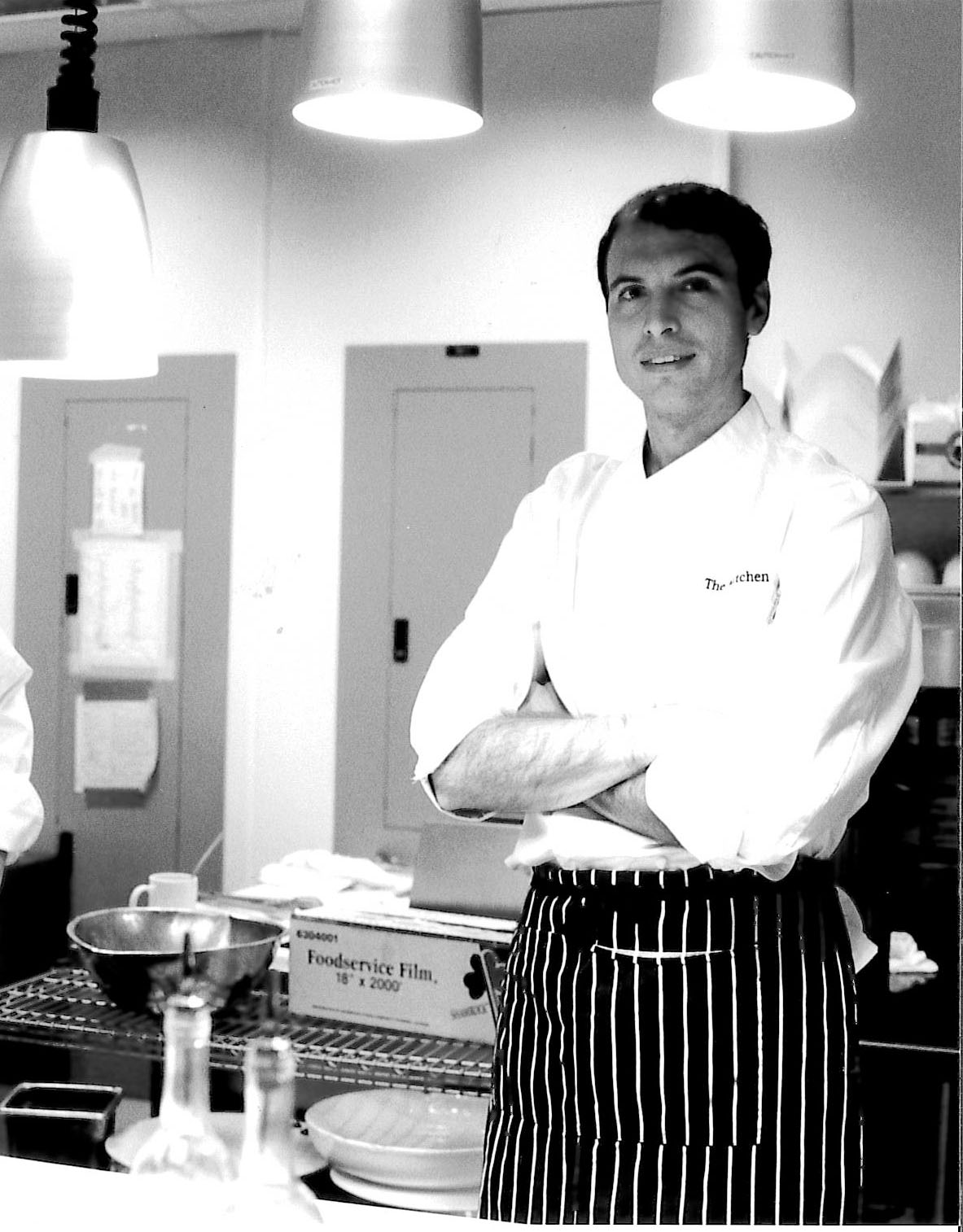
A ski slope changed all that. Along with a voice.
In 2010, Mr. Musk slid down a ski hill on an inner tube and landed on his head. He ended up with a ruptured spinal column that paralyzed the left side of his body. He thought he was going to die. While waiting for surgery, he heard a voice that led him to his current calling.
“I really had this profound voice in my head that I can only describe as God. … And it told me that I would go work on kids and food. It wasn’t specific instructions. It wasn’t like, you’re going to do school gardens, you’re going to do restaurants. It’s just kids—you’re going to help kids connect to food. And I was going to be fine.”
Surgery was successful. “I also got my movement back in my body. And the voice didn’t go away. It wasn’t like a flash of light or anything like that. It was a beautiful, clear voice.”
That experience led to the creation of more than 650 “learning gardens” in schools around the country through Big Green. Teachers can incorporate gardening into the science and math lessons that are part of their curriculum, allowing students to learn outdoors. Mr. Musk hopes that every American will eventually learn to grow food. “You’re going to get a whole new appreciation for the flavor of things, the seasons of things,” he said.
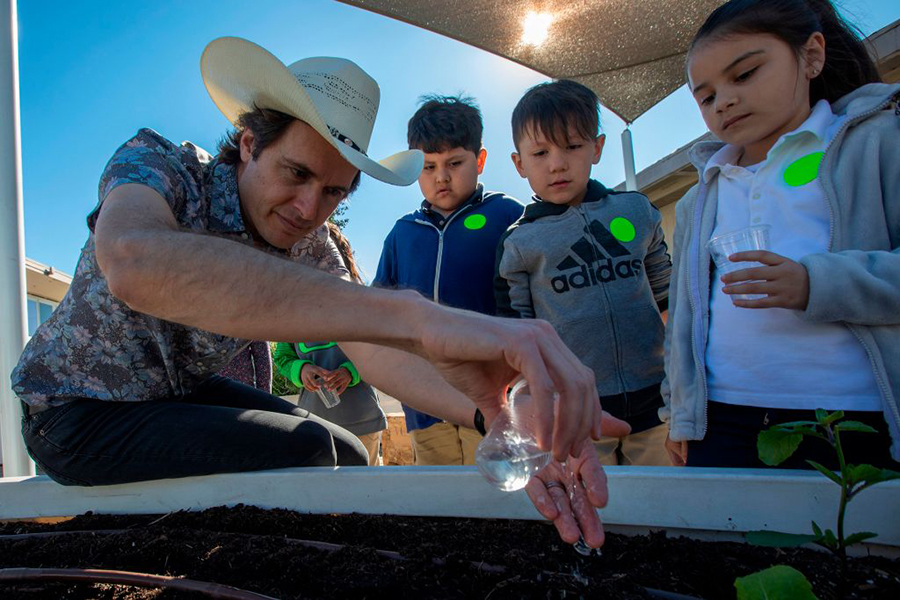
The Future of Food
Mr. Musk is already seeing the trend of American farming changing toward becoming more sustainable. More farmers are embracing regenerative farming, which is designed to improve the quality and health of the soil. It’s not a new concept, as Native Americans have applied regenerative farming principles for centuries.
A farmer might plant corn and beans together: The corn provides a natural trellis for the beans, while the beans put nitrogen into the soil, which helps the corn grow. A rancher might move cattle around and let grazed land “rest” for a while. Periodically rotating the land on which crops are grown can reduce or eliminate the need for pesticides and fertilizer, on which many farms have become reliant.
While many farmers still need time to learn and adapt to these concepts—“it’s a very risk-averse community,” he said—it is catching on around the country. “It grows food better and more nutritionally. And then the farmer can also charge more for their product. So that’s a win for them, too.”
Looking toward the distant future, his vision lies with his Square Roots company, which has nothing to do with math, but focuses on growing food indoors with less energy, such as through hydroponic systems inside upcycled shipping containers. That will become useful if, say, humanity starts living on Mars. The red planet will have less sunlight and fertile ground than Earth. Technology to grow food with fewer resources “will be critical for our expansion on Mars,” he said.
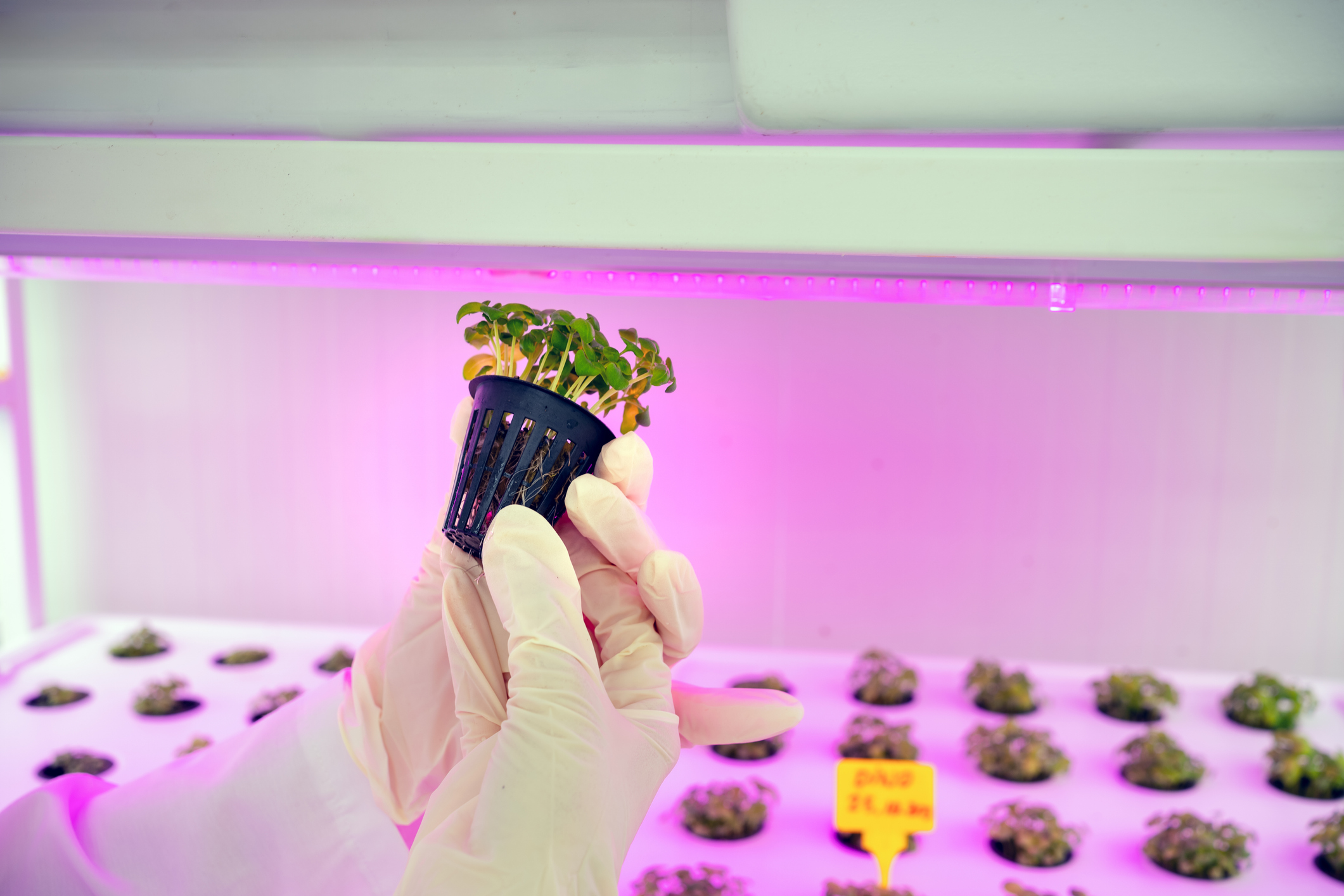
A Family Legacy
The creative spirit within the Musk family traces back to his grandfather, who moved the family from Canada to Africa in 1948. “My grandfather was a cartographer mapping Southern Africa. He mapped the Kalahari Desert, and pioneered understanding geography down there.” He tells of a unique family trip in family lore: On a single engine plane, his grandfather, his wife, and their daughter, Mr. Musk’s mother, went from South Africa to India, Indonesia, and down to Australia. Mr. Musk describes his grandfather as a real adventurer, and that the innovative spirit of the family is “in our bones. In America, that translates into being an entrepreneur, but whatever it is, it’s some sort of a pioneer breaking new ground.”
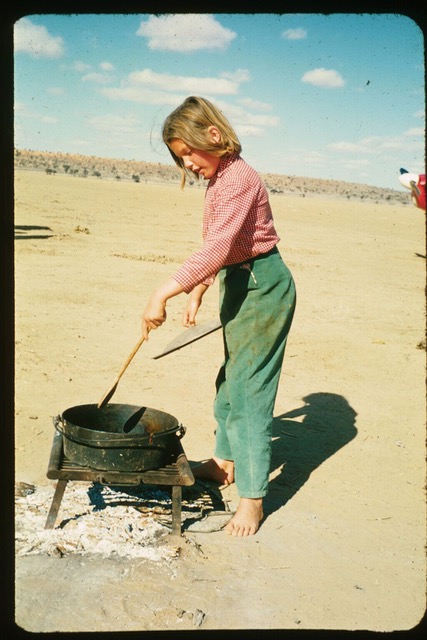
Mr. Musk, who became an American citizen in 2004, talks about how grateful he is for this country, having lived through the apartheid era in South Africa. “My kids, I love them to death. They’ll critique America if we let them,” he said, but he often tells them, “Maybe you should try somewhere else first, before you dive in on the criticisms.”
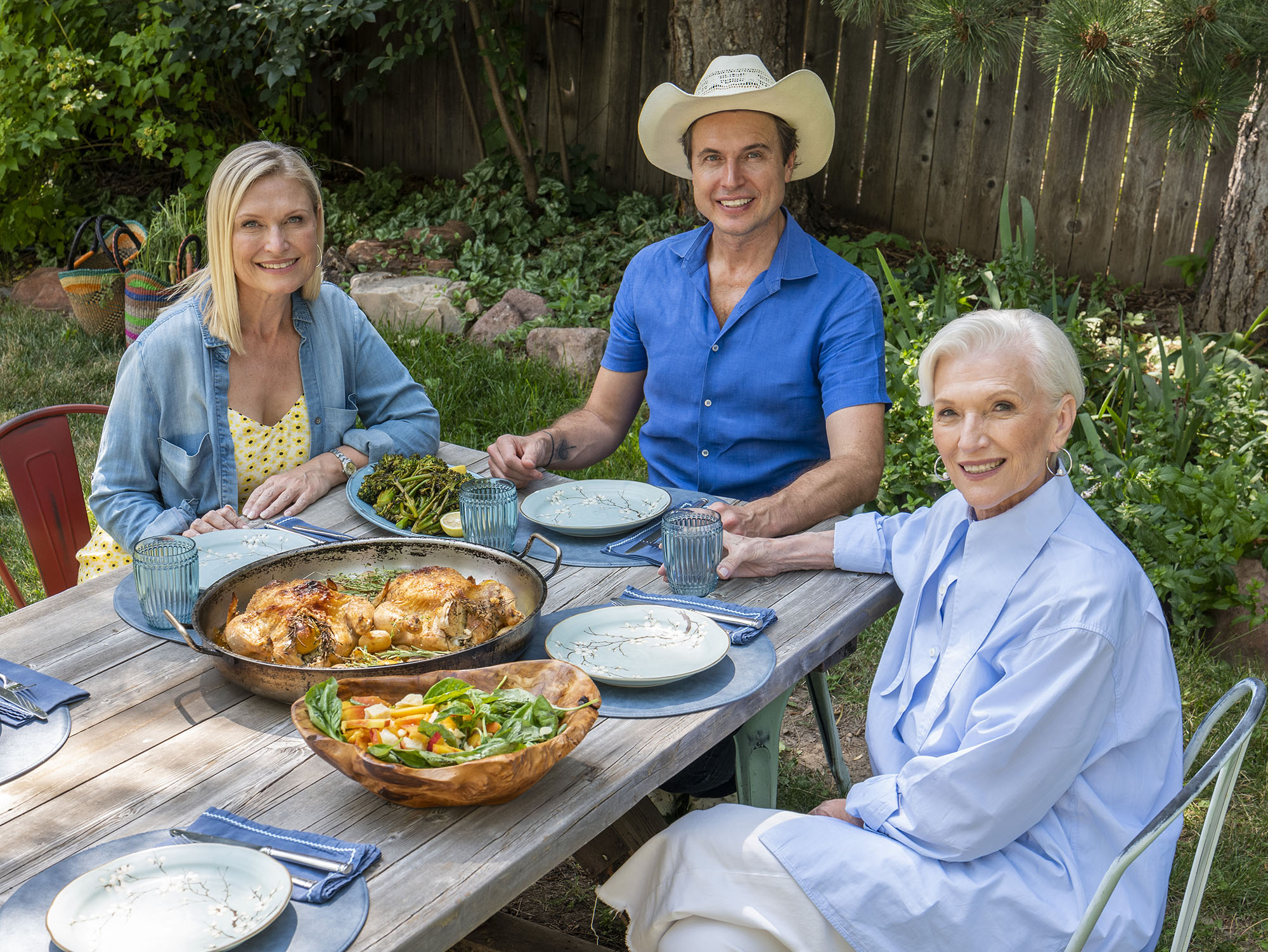
Mr. Musk feels a need to give back to the country that has given him so much. It hit him five years ago during a family trip to the Rocky Mountains. “We were just going for a hike and spending a day in the mountains. And I just had this epiphany—that I have the American dream. I have my wife, I have a beautiful home. I’ve got wonderful kids, and built beautiful businesses that make a difference in this community.”
With reporting by Chris Lawson.
From July Issue, Volume IV

